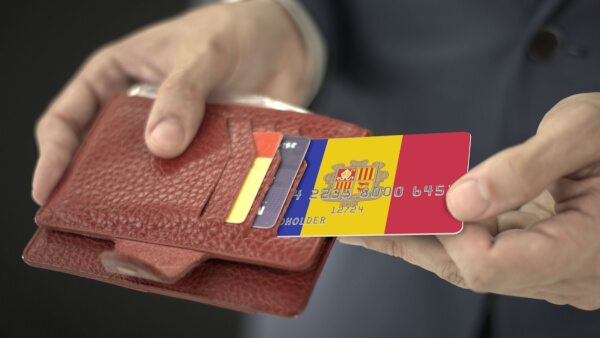How to open a UK bank account online in 2025
Check out our essential guide on how to open a bank account online, including bank types, required documents, fees, and more.

Opening a local bank account is one of the most important things you'll do when you move to a new country. Without one it can be hard to do simple things like set up a home internet connection or get a mobile phone contract. As these are essentials for most of us today, getting a new bank account can quickly become top of the priority list.
But with banking systems varying across the world, this can be a challenging experience as an expat. Here's what you should know, if you need to open a bank account in Poland.
Opening a bank account in Poland should be quite straight forward if you’re a resident. Some banks do not offer products for non-residents, making this a more tricky option for the occasional visitor.
If you’re a resident then all you need to take along to open an account is:
Most banks have English speaking staff and call centres, and branches open until 6 or 7pm during the week. If you have queries you should be able to find someone to help you.
MBank are an internet based bank allowing online account opening - but only for residents. If you have residency already, but happen to be abroad, they can help you open an account remotely.
If you have already moved, but are struggling for time to visit a bank, Bank Millennium offer the option of remote account opening, once you are in Poland. You complete the forms required online, and then arrange an appointment for a courier to visit you with documents and your bank card. The courier can then check your ID and the other paperwork needed, and you’re done.
If you have not yet arrived in Poland, and therefore not completed the residency paperwork, you will find it difficult to open an account.
Some expats report that they have come across banks which will accept a PO Box instead of a residential address, meaning that you could, in theory, open an account as a non-resident too. This is unlikely to be official bank policy, but if a PO Box linked account would be useful to you, then it is worth asking around to see if any institution can help.
Poland has a wide range of national and international banks. Many local banks are in some way affiliated with global banking groups - Bank Pekao is part of the UniCredit Group, and Citibank have merged in with a local bank in Poland.
It can be easier to open an account in Poland if you go with an institution you already work with. So check if your home bank have any alliances with Polish banks, or have a physical presence in the country. Opening an account might be as simple as switching over to a local partner institution.
We’ve compiled a table of four national retail banks in Poland to help you on your search:
MBank is an internet and phone based bank. There are some 47 corporate offices around Poland, but most of their 5 million users bank online. Check out the fee structure if you decide to bank here, as it won’t suit everyone. Account handling fees tend to be fairly low - but if the account you want applies a charge when you withdraw cash from a different bank’s ATM, then it might not be the best deal.
A member of the global UniCredit Group, Bank Pekao is a Polish institution with an 85 year history. They offer a full range of banking services, including personal accounts, cards, investment management and loans. Banking can be done on the internet or by phone.
Bank Millennium offer a good range of financial products, including their standard current account which is free to use, and has a cashback deal on spending for the first six months. This account is subject to certain conditions (as one might expect), including a minimum inflow of cash, and debit card usage. Don’t forget also that other banks’ ATMs might levy a fee for cash withdrawal, even if your own bank does not.
PKO is one of the largest banking brands in Poland, offering a large range of retail banking solutions. They cover Poland and Ukraine, and specialise in current accounts, payment cards and mortgage products.
Opening a bank account will be a fairly simple process. However, if your Polish language skills aren’t up to filtering through the information available online, you might need to pop into a bank branch to get details of the products offered. Notably, Bank Millennium have account information easily available online and in English, so this could be a good starting point for your research.
Old-world bank accounts only work properly in one country. They hold money only in one currency. And it gets expensive when you try to use them across borders. Wise's new Borderless accounts solve all of this.
Now you can send, receive and organise your money internationally, without crazy fees or even-crazier exchange rates – just a small, fair charge when your money moves between currencies.
When you open a bank account in Poland, it's important to read the terms and conditions carefully - especially when it comes to banking fees and charges.
Check, for example, if there are regular charges levied to keep your account open or use a credit or debit card. In Poland it is normal for there to be a monthly fee applied (15 - 20 Zloty) to use your account. Although usually relatively small, these account handling fees mount up over time. Some accounts will waive this fee for the first six months or year, which might make them more attractive.
Other common charges include a set fee for withdrawing cash from an ATM operated by a different bank. Be aware of whether this may apply to your chosen account.
Fees can be particularly steep if you need to regularly move money between accounts which use different currencies. As well as a charge for processing the transaction, expect to see the bank’s profit rolled into an exchange rate which is far from favourable.
For international money transfers with low, transparent fees, using Transferwise is a far better option. With Transferwise you can transfer money between accounts using the real exchange rate. There is no mark up, and no hidden fees, just a clear set charge for your transfer, so you get the best rate available. Check out our website to find out more about simple, and fair international money transfers with Transferwise.
*Please see terms of use and product availability for your region or visit Wise fees and pricing for the most up to date pricing and fee information.
This publication is provided for general information purposes and does not constitute legal, tax or other professional advice from Wise Payments Limited or its subsidiaries and its affiliates, and it is not intended as a substitute for obtaining advice from a financial advisor or any other professional.
We make no representations, warranties or guarantees, whether expressed or implied, that the content in the publication is accurate, complete or up to date.

Check out our essential guide on how to open a bank account online, including bank types, required documents, fees, and more.

Check out our essential guide on how to open a bank account in Jersey as a British expat, including documents, fees, banks and much more.

Check out our essential guide on how to open a bank account in Monaco as a British expat, including documents, fees, banks and much more.

Check out our essential guide on how to open a bank account in Andorra as a British expat, including documents, fees, banks and much more.

Read our rundown of the best Nationwide USD account alternatives available in the UK, including HSBC, Lloyds, Wise, Barclays, Revolut and more.

Read our essential guide to the Revolut USD Account, including info on features, fees, rates, limits and how to apply.